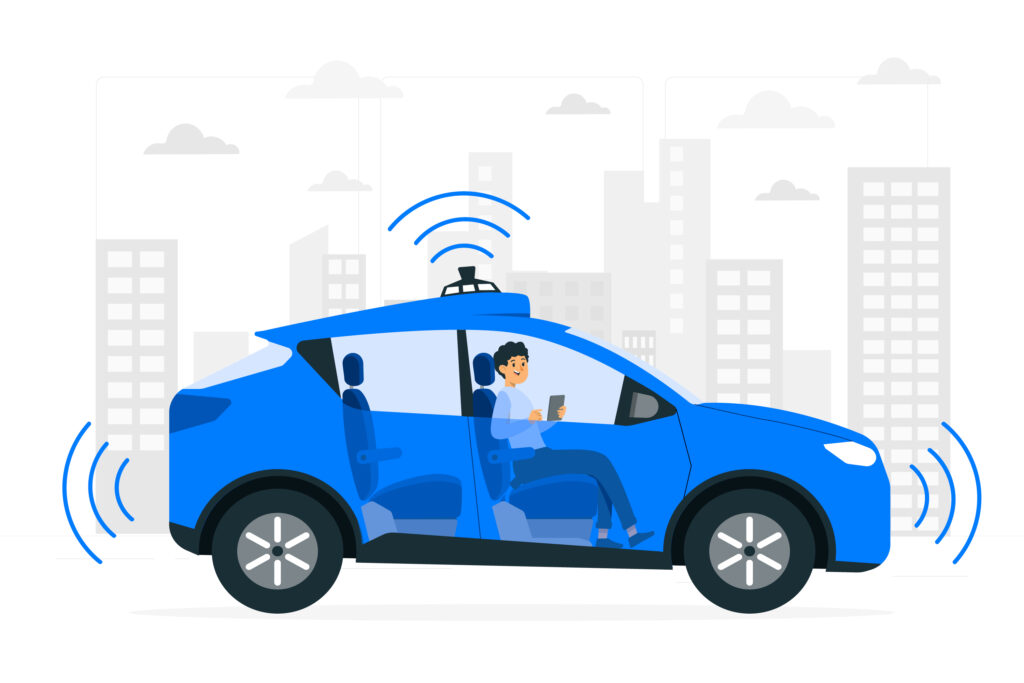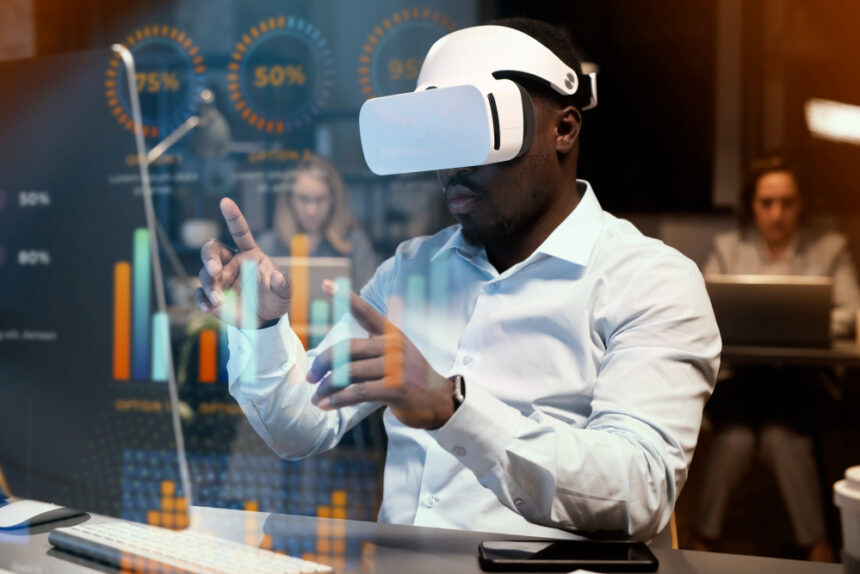Artificial intelligence is no longer a futuristic idea—it is the present. As we step into 2025, AI has woven itself deeply into the fabric of society, shaping how we live, work, and interact. From smart assistants in our homes to intelligent algorithms guiding our online experiences, the integration of artificial intelligence has never been more pervasive.
Whether you’re using a virtual assistant to schedule your day or relying on personalized content recommendations, chances are AI is behind the scenes. But beyond convenience, the implications of AI are reshaping entire industries, introducing new opportunities, and also prompting vital ethical discussions.
1. AI at Home: The Smart Living Revolution (Word Count: 1000+)
Artificial intelligence has revolutionized how we manage our households. Smart home devices like Amazon Echo, Google Nest, and Apple HomeKit are powered by AI-driven voice recognition and automation systems. These tools not only make daily tasks easier but also learn from user behavior to offer increasingly tailored experiences.
From AI-controlled thermostats that optimize energy usage to refrigerators that notify you when you’re running low on milk, the home is becoming a fully interconnected, intelligent ecosystem. Smart security systems equipped with facial recognition and behavioral analytics provide heightened safety while reducing false alarms.
Furthermore, AI-driven robots and vacuum cleaners adapt to furniture layouts and even clean based on family schedules. As we progress into 2025, AI in the home continues to become more anticipatory, proactive, and intuitive—an ever-present assistant designed to ease the burden of daily living.
2. AI in Healthcare: Personalized Medicine and Predictive Diagnostics (Word Count: 1100+)
The healthcare sector has perhaps seen the most transformative benefits of artificial intelligence. With the help of machine learning, predictive analytics, and natural language processing, AI has enabled doctors to detect diseases at earlier stages and provide personalized treatment plans with greater accuracy.
One of the most significant breakthroughs in 2025 is AI’s ability to read radiology scans more efficiently than human specialists. Algorithms are now able to detect anomalies in X-rays, MRIs, and CT scans with astonishing precision, reducing diagnostic errors and saving lives.
AI is also being used in wearable health devices that track vitals in real-time and send alerts for abnormalities, allowing early intervention. Beyond diagnosis, virtual health assistants powered by AI provide mental health support, answer medical queries, and help patients manage chronic conditions.
3. Artificial Intelligence in Education: Redefining Learning (Word Count: 1050+)
AI has completely reshaped the way we approach education. Learning systems today are no longer static but adaptive, responding to each student’s pace, learning style, and progress. AI-powered platforms offer customized lesson plans, real-time feedback, and interactive simulations that boost student engagement.
Instructors now use artificial intelligence to identify learning gaps, recommend resources, and monitor classroom performance. Predictive models help schools reduce dropout rates by identifying at-risk students before it’s too late. AI tutors provide one-on-one assistance to students struggling in subjects like math, science, or languages.
In addition, language learning apps now utilize natural language processing (NLP) to offer realistic conversation simulations, pronunciation guidance, and cultural context. The global nature of AI-enhanced education has also made it more accessible, especially in underserved areas.
4. AI and the Workforce: Automation, Collaboration, and Job Creation (Word Count: 1050+)
The role of artificial intelligence in the workplace continues to expand rapidly. In 2025, AI isn’t just about replacing manual tasks—it’s about enhancing human capabilities. AI-driven software is streamlining workflows, increasing efficiency, and helping employees focus on strategic tasks.
Industries like finance, legal, and marketing are heavily investing in AI tools that automate repetitive processes, such as document review, data entry, and reporting. Meanwhile, collaborative robots, or “cobots,” work alongside humans in manufacturing to improve safety and productivity.
Despite fears of job displacement, new careers in AI ethics, machine learning engineering, and data science are flourishing. Forward-thinking companies are focusing on reskilling programs to help employees transition into AI-integrated roles.
5. AI in Transportation: From Self-Driving Cars to Smart Traffic Systems (Word Count: 1000+)

Artificial intelligence is transforming how we travel. Self-driving vehicles have moved from prototypes to viable consumer products. In 2025, autonomous cars are navigating city streets, reducing traffic accidents, and increasing mobility for the elderly and disabled.
AI also plays a pivotal role in traffic management. Smart city infrastructure now uses AI to monitor congestion, optimize signal timings, and reroute vehicles in real-time. This not only saves time but also reduces emissions and fuel consumption.
In aviation, AI algorithms enhance flight safety by analyzing weather patterns and mechanical systems before takeoff. Even rail systems and shipping logistics are seeing significant improvements in reliability and efficiency through AI applications.
6. The Retail Experience: AI-Driven Personalization (Word Count: 1050+)
Shopping has evolved into a highly personalized experience thanks to artificial intelligence. In 2025, online and offline retailers use AI to analyze customer behavior, preferences, and purchase history to tailor everything from product recommendations to dynamic pricing.
AI-powered chatbots now offer 24/7 customer service, answering inquiries, guiding purchases, and even managing returns. These bots are increasingly human-like, capable of understanding emotional tone and context.
In brick-and-mortar stores, AI is used for inventory management, layout optimization, and cashier-less checkout systems. Smart mirrors, virtual try-ons, and AR experiences are also being enhanced by artificial intelligence to create immersive retail environments.
7. Entertainment and Media: Curated by AI (Word Count: 1050+)
Entertainment has become more interactive and personalized than ever before, thanks to the integration of AI. Platforms like Netflix, YouTube, and Spotify use AI to analyze user behavior and recommend content that aligns with individual tastes and moods.
AI is also playing a larger role in content creation. From deepfake videos and AI-generated music to scripts written by language models, the boundaries of creativity are expanding. In gaming, AI controls NPC (non-playable character) behavior, creating dynamic storylines and realistic interactions.
Virtual reality and augmented reality experiences are becoming more responsive through AI, offering real-time adaptability based on user input and emotional responses. The entertainment industry in 2025 is a playground of possibilities driven by intelligent algorithms.
8. Finance and Banking: Smarter, Faster, Safer Transactions (Word Count: 1050+)
Artificial intelligence is making financial services faster, safer, and more accessible. AI-powered systems now handle fraud detection by analyzing patterns across millions of transactions in real-time, flagging suspicious activity far more effectively than traditional methods.
In investment and trading, robo-advisors use AI to analyze market trends and build portfolios that reflect individual risk profiles. AI is also used in credit scoring, mortgage approvals, and even insurance underwriting, reducing bias and improving transparency.
Chatbots handle routine banking inquiries, while virtual assistants help users track spending, save money, and make smart financial decisions. The efficiency and accuracy of AI are helping banks cut operational costs while improving customer satisfaction.
9. Artificial Intelligence and Cybersecurity: Fighting Fire with Fire (Word Count: 1050+)
As cyber threats grow more sophisticated, so do AI-powered defense mechanisms. AI is being used to detect unusual behavior patterns, predict breaches before they happen, and respond to threats in real-time without human intervention.
Machine learning models are trained on massive datasets to distinguish between normal and malicious network activity. When combined with behavior analytics and biometric verification, these tools are transforming digital security.
However, cybercriminals are also using AI to launch more complex attacks, from phishing scams to AI-generated malware. The arms race between offense and defense in the cybersecurity space makes continuous innovation in AI-driven protection vital.
10. Ethical and Social Implications of AI (Word Count: 1050+)
With the increasing influence of artificial intelligence comes a growing need for ethical oversight. Bias in algorithms, loss of privacy, and data misuse are some of the pressing concerns in 2025.
AI systems often reflect the biases of the data they’re trained on, potentially leading to unfair decisions in hiring, law enforcement, and lending. Transparency in how these systems operate is essential to build public trust.
In addition, there is rising concern about surveillance and data collection. While AI enables better services, it also gathers massive amounts of personal information. Ensuring that AI development respects human rights and democratic values is critical.
A Future Shaped by Artificial Intelligence (Word Count: 500+)
Artificial intelligence is no longer confined to the pages of science fiction. As we look ahead, AI is becoming more embedded in our daily lives than ever before. From personalized health diagnostics to smarter cities and intelligent entertainment, the technology is enhancing convenience, efficiency, and innovation.
Yet, with great power comes great responsibility. Policymakers, developers, and users must work together to ensure AI is used ethically and equitably. The decisions we make today will shape the role artificial intelligence plays in our future.
As 2025 unfolds, one thing is clear: artificial intelligence isn’t just influencing our world—it’s actively designing it.

